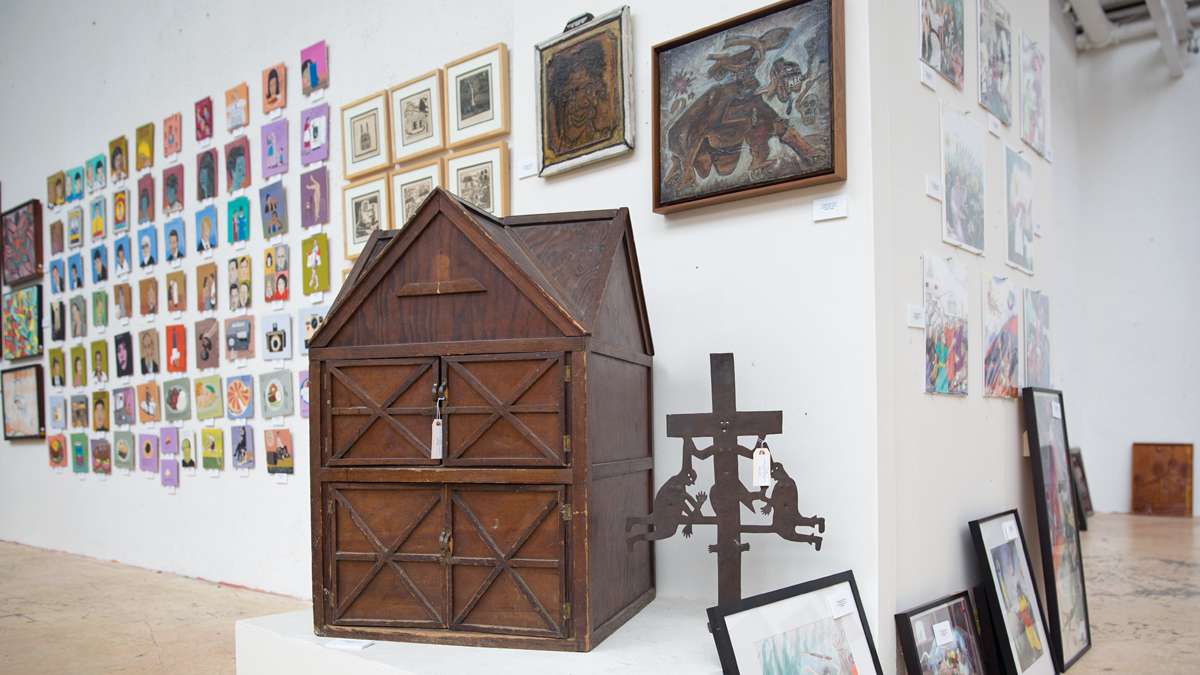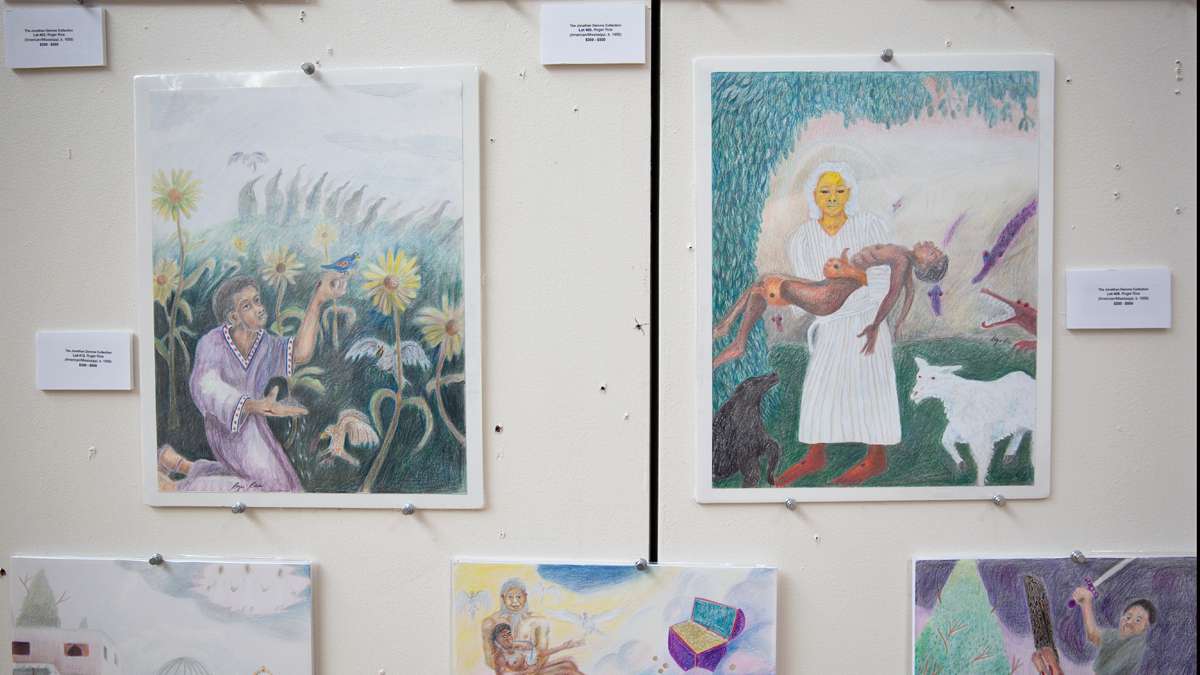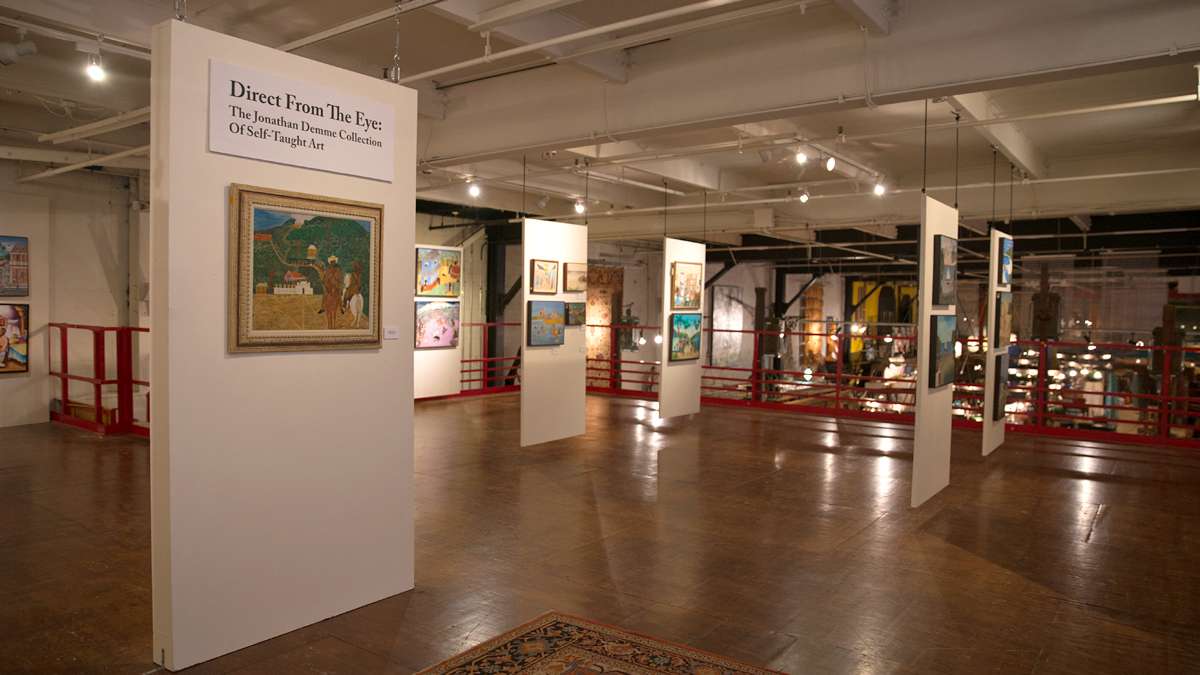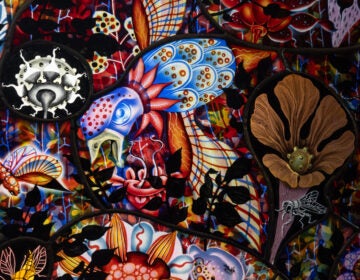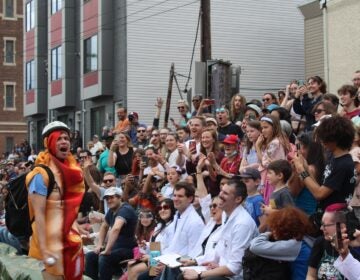Seeking ‘oxygen,’ filmmaker Demme to auction off Haitian art trove in Philly
In Philadelphia this weekend, a huge trove of folk art will be auctioned off from the collection of filmmaker Jonathan Demme.
The man who directed The Silence of the Lambs, Philadelphia and the Talking Heads concert movie Stop Making Sense, has also been an avid collector of art from Haiti. Demme approached Material Culture, in the city’s Nicetown neighborhood, to sell almost 1,500 objects, about 80 percent of his collection.
“This is part of a gigantic psychic cleansing,” said Demme, who is also clearing out his filing cabinet to archive his papers at Wesleyan College.
The import retailer Material Culture has two enormous showrooms for the auctions it frequently hosts. The Demme collection is so large it spills over into an additional room. The 70 year-old filmmaker has been collecting so-called “outsider” art from Haiti, Jamaica, and Africa for almost 30 years. He calls it an addiction.
“I don’t use the term ‘addiction’ lightly. Lots of my family have been addicted to alcohol,” said Demme, wearing bright blue sneakers and a neon-orange “Occupy Wall Street” hoodie while hanging his paintings to prepare for the auction. “It’s a relatively benign addiction — but it’s still an addiction, an extremity. There’s a joy of discovery and collecting: ‘I gotta get that,’ so you get it. But when you get to be my age, you see your life inventory and you want more oxygen.”
The collection includes some highly prized artists, including Hector Hippolyte, a Vudou priest whose paintings of birds and foliage are highly prized; Wilson Bigaud, who painted scenes of everyday life, and sculptor Georges Liataud, who chiseled Vudou figures out of steel oil drums.
There are also dozens of pieces with no artist attribution. Demme just liked the images.
“When I’m shooting, or cutting, or preparing to shoot, I find myself standing in front of the paintings more often than not,” said Demme, adding that the Haitian images do not have a direct impact on his film work. However, his film work directly impacts his collecting.
“That’s when the feeding frenzy gets the greatest,” said Demme. “When we were shooting Philadelphia, here in Philadelphia, we were all working so hard. And yet somehow or other I was on the phone with some guy in Florida who had a collection, and he sent some great photos and came to the set while we were shooting. I said, ‘Hey Denzel [Washington], come here and take a look.’ We said, ‘Yeah, I’ll take that one and that one and that one.’ So, in the middle of all this crazy work – this frenzy for imagery.”
Demme discovered Haitian art in 1986 and almost immediately visited the country where he would eventually make two documentaries, including The Agronomist, about the assassinated radio journalist Jean Dominique.
“Demme was in Haiti during some very key periods of tumult,” said Anthont Fisher, who runs Indigo Arts, a folk and tribal art gallery, in Philadelphia’s Kensington. “The period of the end of the [Jean-Claude ‘Baby Doc’] Duvalier regime, and several coups and counter-coups, the election of [Jean-Bertrand] Aristide, the overthrow of Aristide, the re-installation of Aristide, and the second overthrow of Aristide. Jonathan picked paintings all along the way that recorded a lot of those activities as political events.”
During the time of Francois “Papa Doc” Duvalier, most of the population of Haiti was illiterate, so visual imagery was a key way to disseminate stories. Painters often recorded the events of the day on canvas. In the 1990’s, Demme commissioned artist Wilfred Guerrier and Paul Jean-Pierre to paint images as an historical record.
That section of the auction exhibition gets kind of gruesome. There are paintings of riots, assassinations, and massacres when soldiers of the paramilitary group Tonton Macoute killed citizens and politicians, and citizens reacted violently.
“This is when the people turned on the Tonton Macoute, these are the people taking justice on them, and killing them in the street,” said Demme. “I don’t condone violence, but that’s what happened.”
Demme collected political T-shirts, soda-pop bottles, prisoner art, religious art, pop art, landscapes. He says he bought it all because he loved it, but lately most of it is languishing in storage.
“I just want to get rid of it, I want all that oxygen to come in, and not have to get another storage space,” said Demme. “I brought these things down to Philadelphia, I don’t want to bring them home again.”
After the auction, Demme says he will donate some of the proceeds to the Centre d’Art, a cultural center in Port-au-Prince.
WHYY is your source for fact-based, in-depth journalism and information. As a nonprofit organization, we rely on financial support from readers like you. Please give today.



